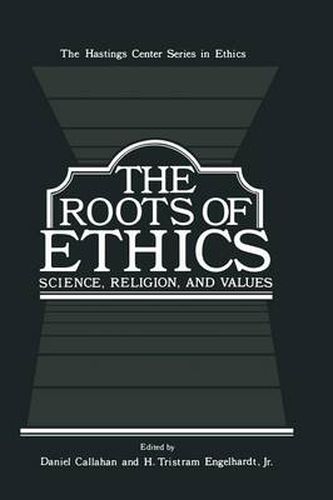Readings Newsletter
Become a Readings Member to make your shopping experience even easier.
Sign in or sign up for free!
You’re not far away from qualifying for FREE standard shipping within Australia
You’ve qualified for FREE standard shipping within Australia
The cart is loading…






This title is printed to order. This book may have been self-published. If so, we cannot guarantee the quality of the content. In the main most books will have gone through the editing process however some may not. We therefore suggest that you be aware of this before ordering this book. If in doubt check either the author or publisher’s details as we are unable to accept any returns unless they are faulty. Please contact us if you have any questions.
OUR AGE IS CHARACTERIZED by an uncertainty about the na ture of moral obligations, about what one can hope for in an afterlife, and about the limits of human knowledge. These uncertainties were captured by Immanuel Kant in his Critique of Pure Reason, where he noted three basic human questions: what can we know, what ought we to do, and what can we hope for. Those questions and the uncer tainties about their answers still in great part define our cultural per spective. In particular, we are not clear about the foundations of ethics, or about their relationship to religion and to science. This volume brings together previously published essays that focus on these inter relationships and their uncertainties. It offers an attempt to sketch the interrelationship among three major intellectual efforts: determining moral obligations, the ultimate purpose and goals of man and the cosmos, and the nature of empirical reality. Though imperfect, it is an effort to frame the unity of the human condition, which is captured in part by ethics, in part by religion, and in part by the sciences. Put another way, this collection of essays springs from an attempt to see the unity of humans who engage in the diverse roles of valuers, be lievers, and knowers, while still remaining single, individual humans.
$9.00 standard shipping within Australia
FREE standard shipping within Australia for orders over $100.00
Express & International shipping calculated at checkout
This title is printed to order. This book may have been self-published. If so, we cannot guarantee the quality of the content. In the main most books will have gone through the editing process however some may not. We therefore suggest that you be aware of this before ordering this book. If in doubt check either the author or publisher’s details as we are unable to accept any returns unless they are faulty. Please contact us if you have any questions.
OUR AGE IS CHARACTERIZED by an uncertainty about the na ture of moral obligations, about what one can hope for in an afterlife, and about the limits of human knowledge. These uncertainties were captured by Immanuel Kant in his Critique of Pure Reason, where he noted three basic human questions: what can we know, what ought we to do, and what can we hope for. Those questions and the uncer tainties about their answers still in great part define our cultural per spective. In particular, we are not clear about the foundations of ethics, or about their relationship to religion and to science. This volume brings together previously published essays that focus on these inter relationships and their uncertainties. It offers an attempt to sketch the interrelationship among three major intellectual efforts: determining moral obligations, the ultimate purpose and goals of man and the cosmos, and the nature of empirical reality. Though imperfect, it is an effort to frame the unity of the human condition, which is captured in part by ethics, in part by religion, and in part by the sciences. Put another way, this collection of essays springs from an attempt to see the unity of humans who engage in the diverse roles of valuers, be lievers, and knowers, while still remaining single, individual humans.